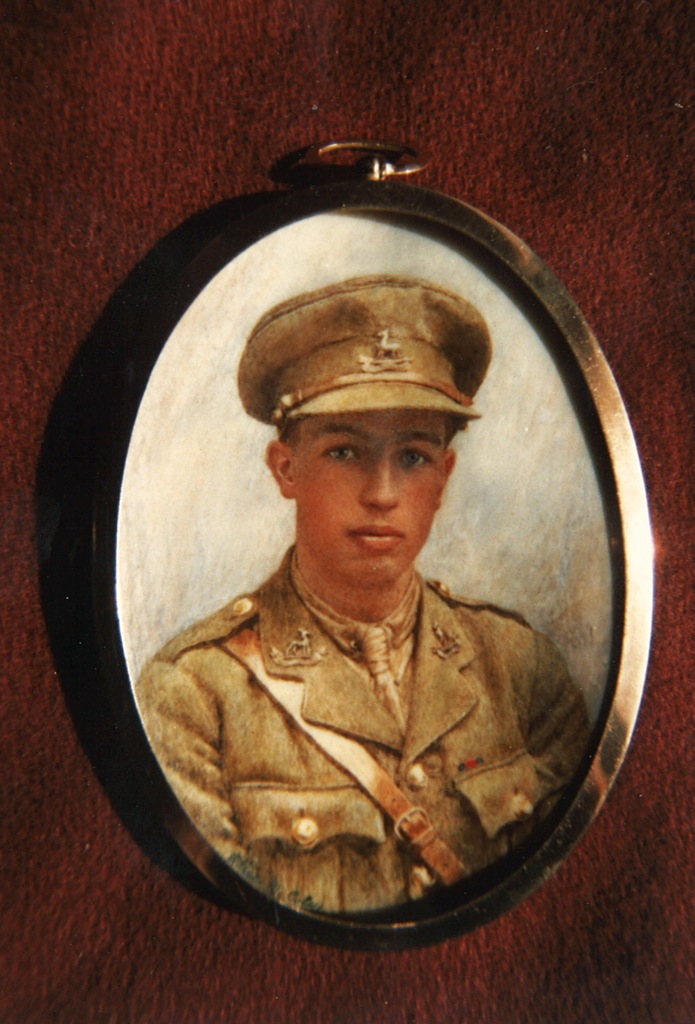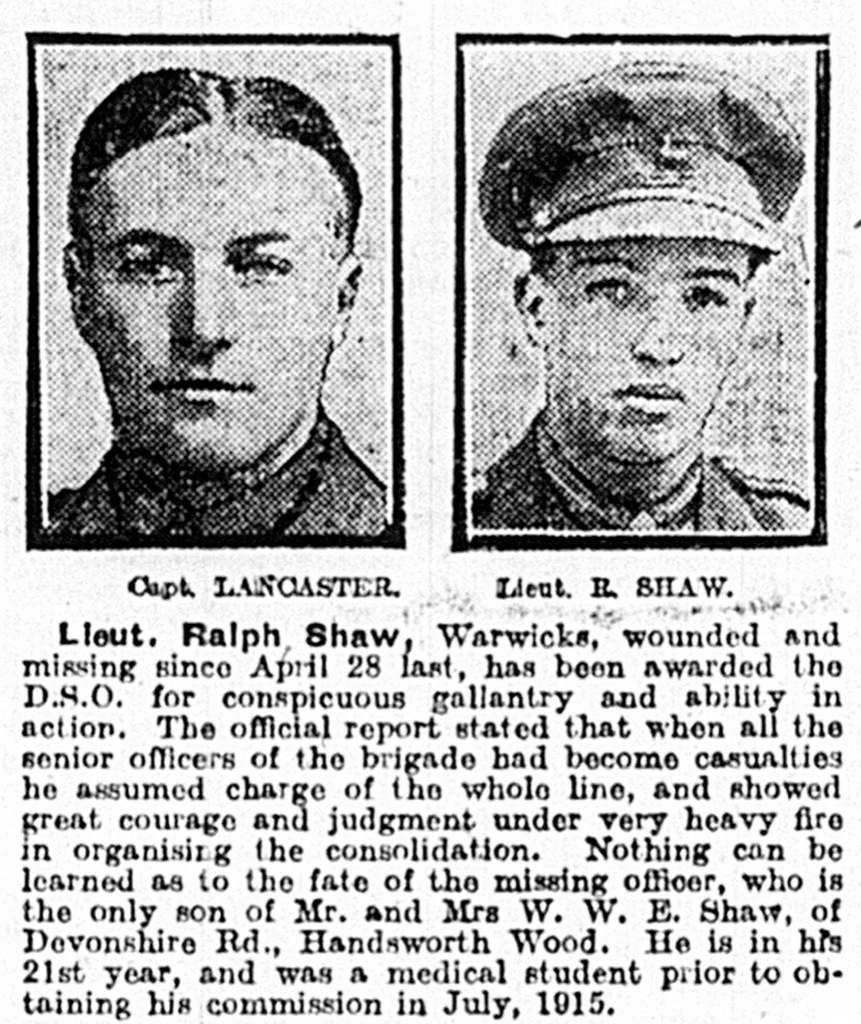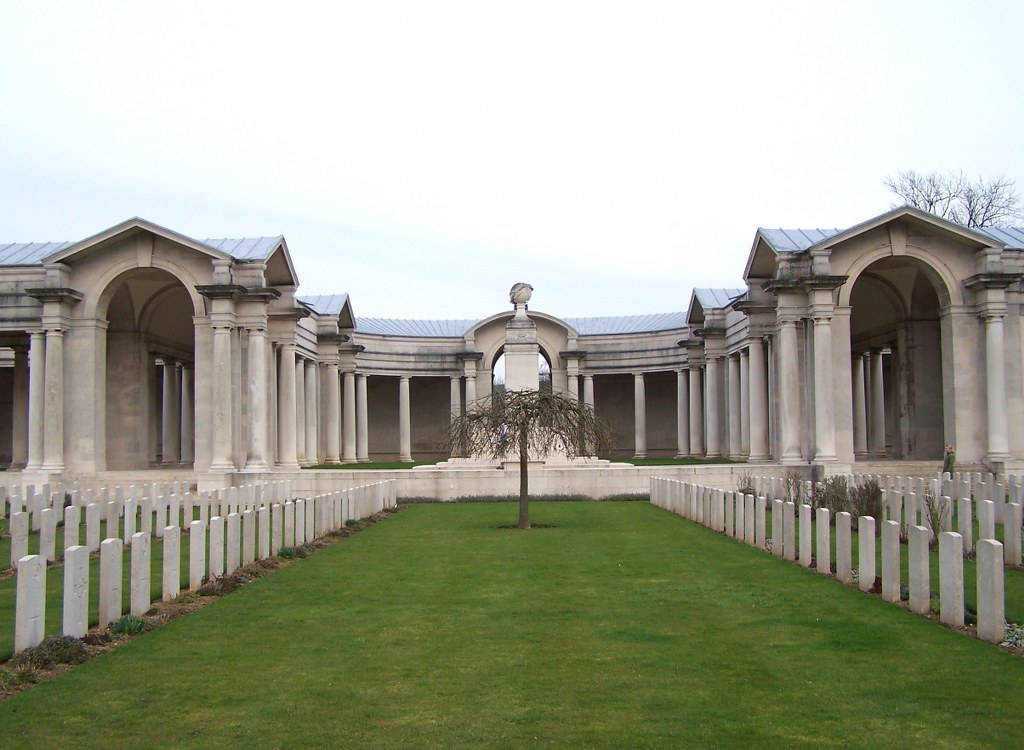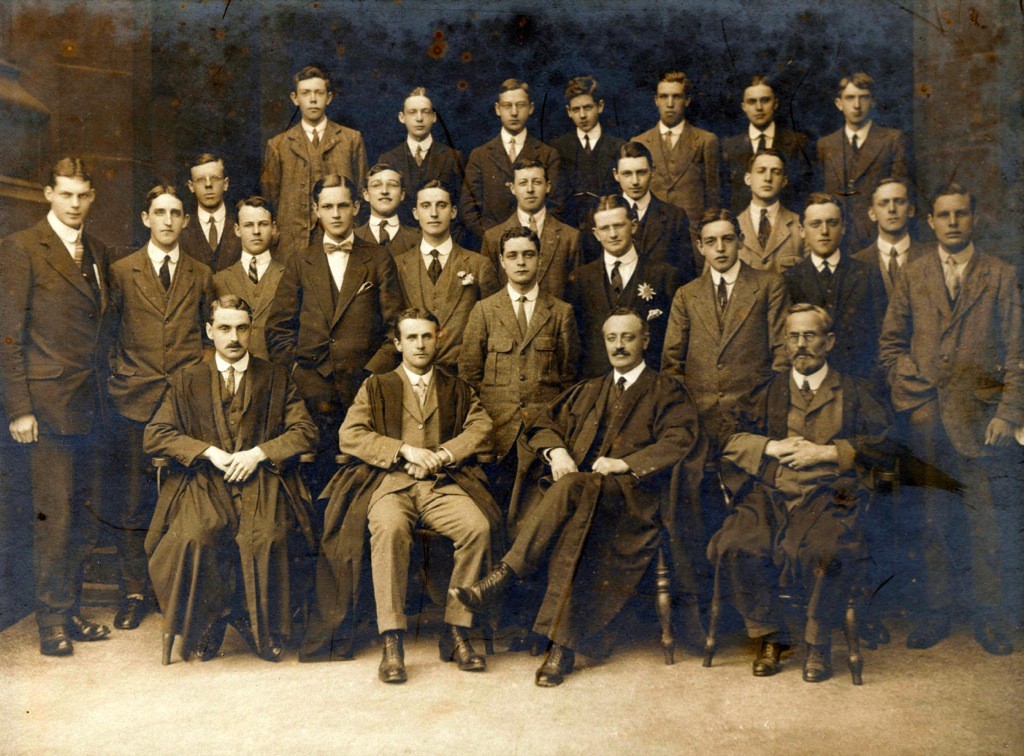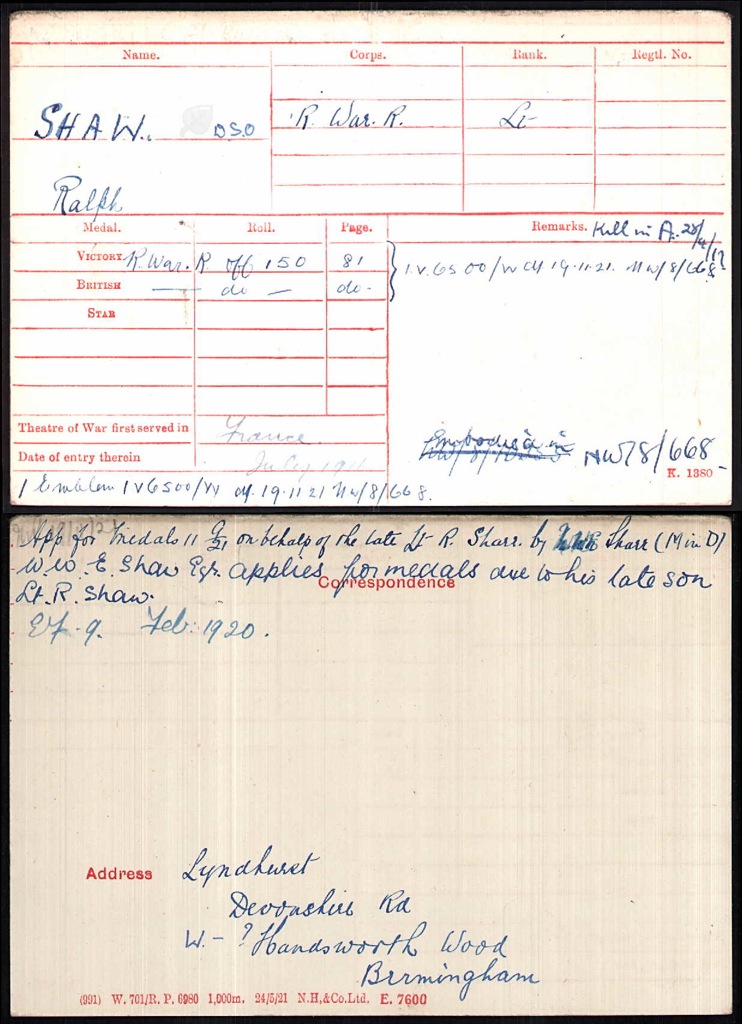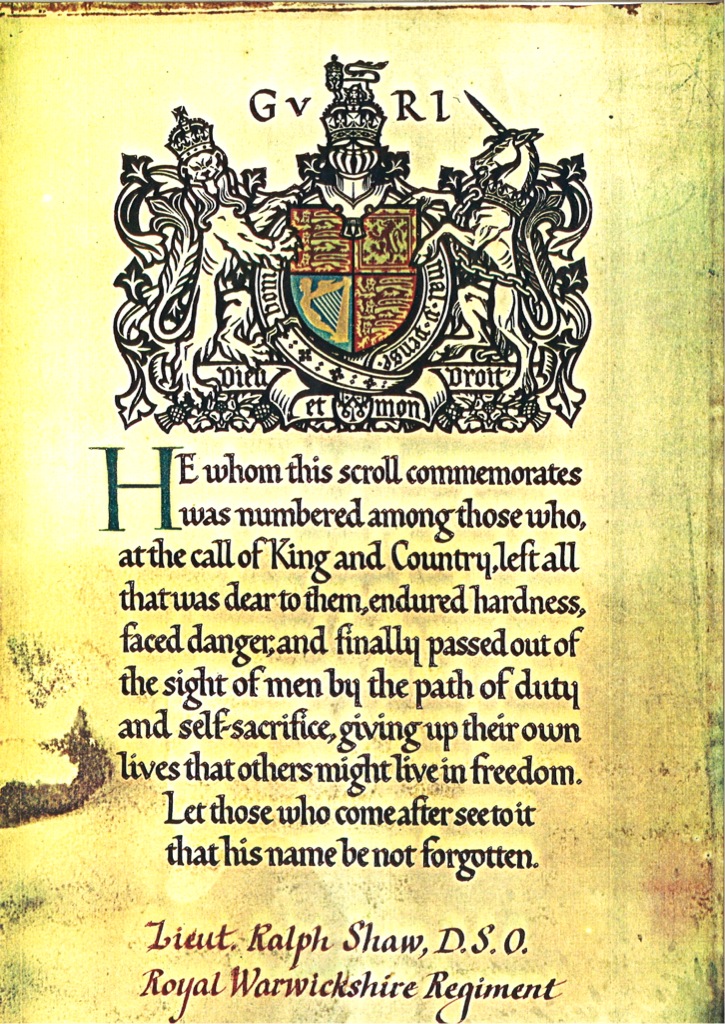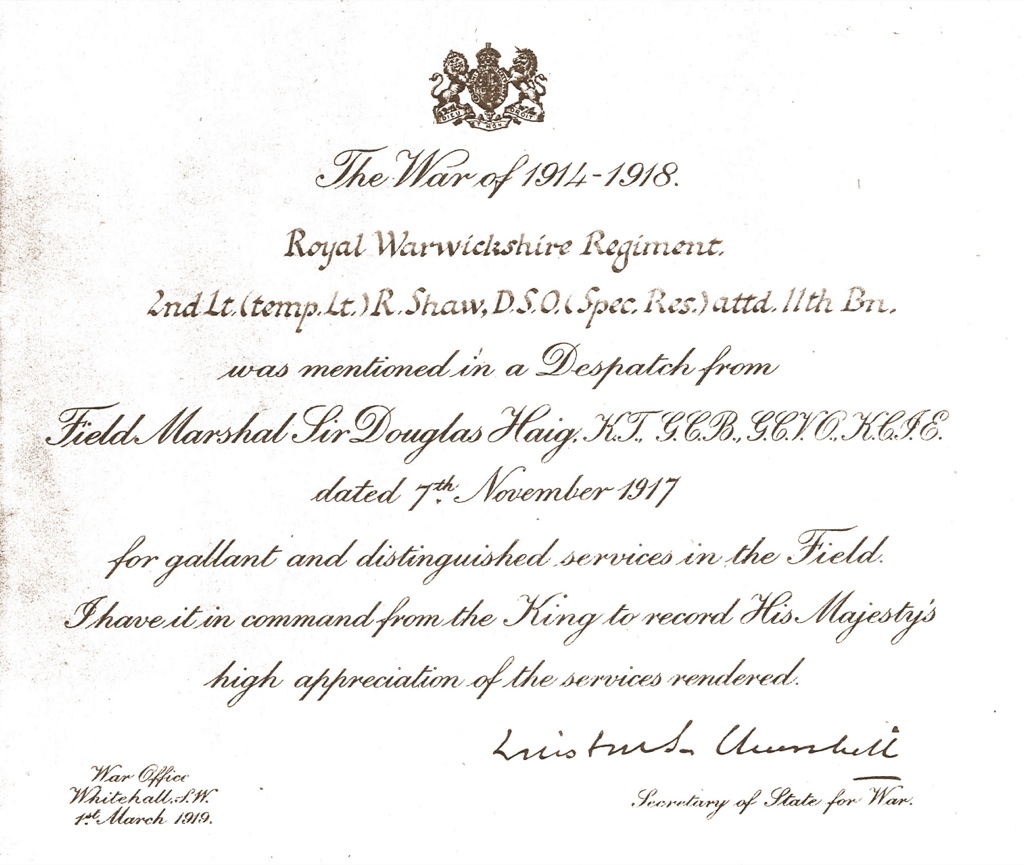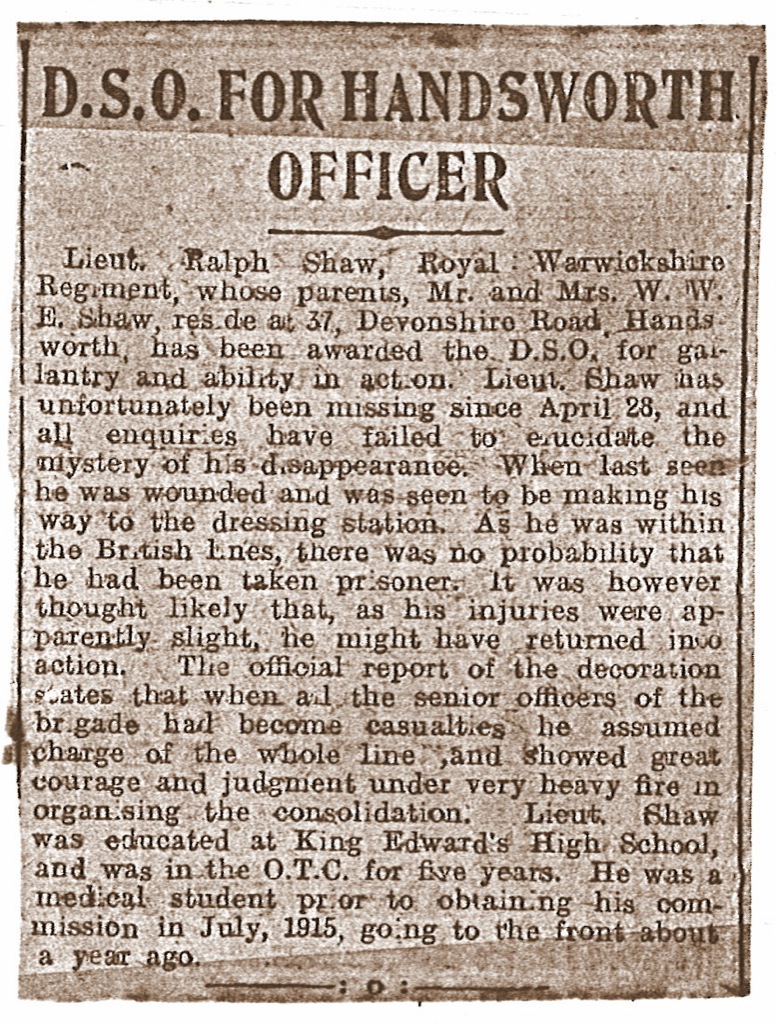Ralph Shaw, born on 29th July 1896, was admitted to King Edward’s School in January 1909 as a Foundation Scholar, having previously attended Richmond House Preparatory School. He lived with his father, William, a chartered accountant, his mother, Lucy, and his two younger sisters on Devonshire Road, Handsworth Wood.
Ralph was a pupil of the Modern School, studying a scientific, rather than classical, curriculum. In this he was extremely successful, placing top of his class in Biology, fourth in chemistry and physics as well as winning prizes for biology and laboratory work. As a result of such strong performances, he was promoted to the Modern School First Class for his final year. In 1915, Ralph was a member of the Debating Society. He made his maiden speech in March, putting forward the argument that, “military training should play a prominent part in the school curriculum”. Two months later, with the Lord Mayor in the Chair, Ralph participated in a follow-up debate, considering the motion, “That this House would favour a system of compulsory military training”. He argued for the affirmative, pointing out the satisfactory results of such training among other European Powers.
After leaving School, Ralph became a medical student, enlisting in July 1915 immediately after passing his first-year exams. He obtained his commission as a Second Lieutenant with the Royal Warwickshire Regiment, having spent five years in the School’s Officer Training Corps. Ralph served in France with the Expeditionary Force in 1916, assuming the role of Acting Lieutenant. He was promoted to Lieutenant in November 1916, and was killed in action at Greenland Hill, near Gavrelle, on 28th April 1917. At the time of his death, Ralph was the youngest soldier to have been awarded the Distinguished Service Order, “for conspicuous gallantry and ability in action. When all the senior officers of the Brigade had become casualties, he assumed charge of the whole line, and showed great courage and judgment under very heavy fire in organising the consolidation.” On 18th December 1917, Ralph was mentioned in despatches by Field Marshal Sir Douglas Haig, “for gallant and distinguished service in the field”. He was wounded and reported missing in action; when last seen, he was making his way to the dressing station to have his wounds tended. His body was never recovered but he is commemorated on the Arras Memorial.

